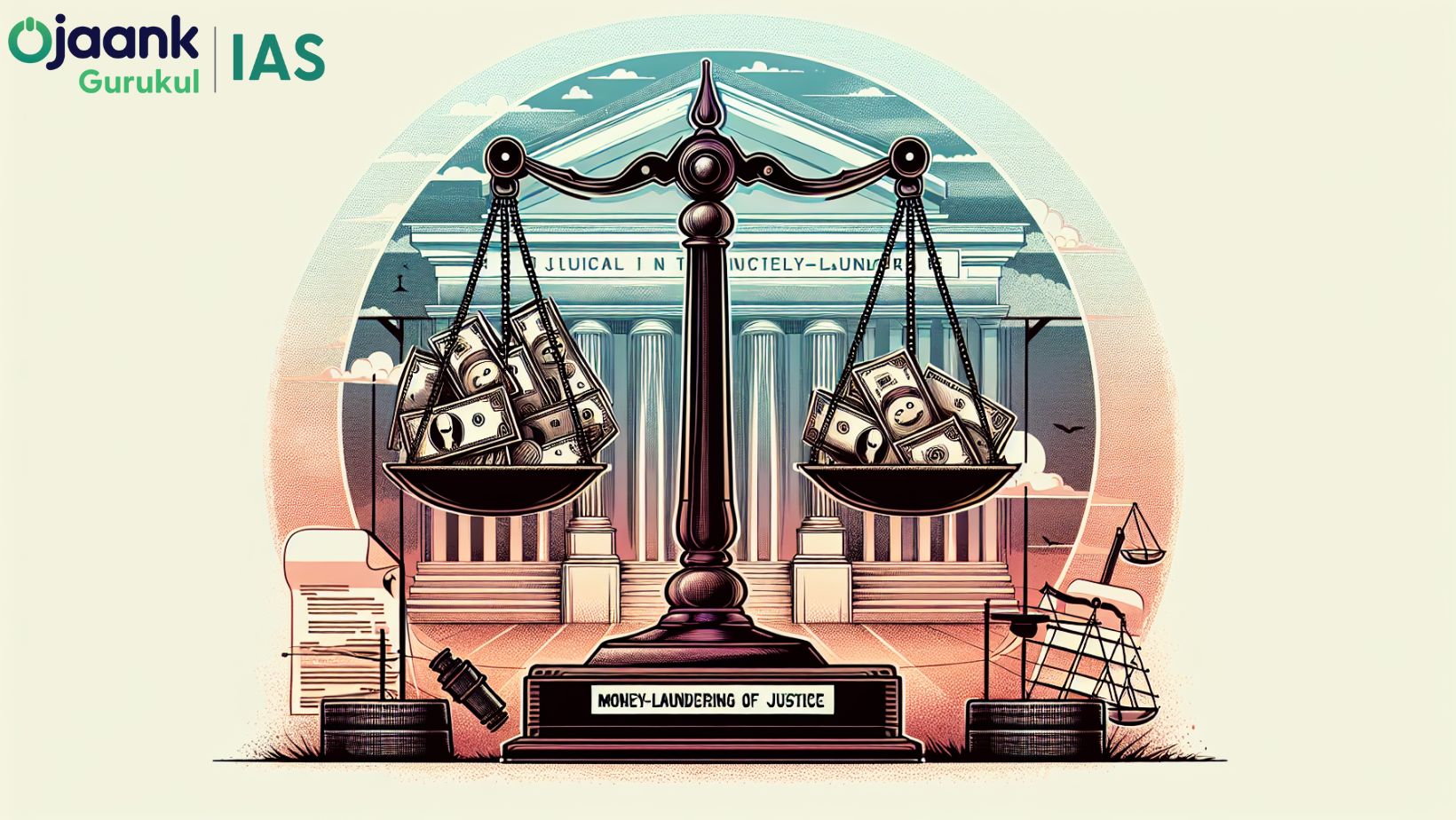Big Win for Defendants: Supreme Court Overturns Money-Laundering Jail Norms !

1. What did the Supreme Court rule about bail in money-laundering cases ?
The Supreme Court of India has established a significant precedent in money-laundering cases by asserting that bail should generally be the rule, while incarceration should be the exception. This ruling suggests that individuals accused of money laundering should be granted bail unless there are exceptional circumstances justifying their continued detention. This shift reflects a broader legal principle favoring bail over pre-trial detention, aligning with the idea that accused individuals are presumed innocent until proven guilty.
2. What is the general principle about bail in money-laundering cases according to the Supreme Court ?
According to the Supreme Court, the principle that bail is the rule and jail is the exception applies even in serious cases like money laundering. This means that, as a matter of general practice, courts should lean towards granting bail to accused individuals rather than denying it. The ruling indicates that, while bail decisions will still be made on a case-by-case basis, there should be a presumption in favor of bail, barring any strong reasons or evidence that warrant the denial of bail.
3. How does the Supreme Court's ruling affect the Prevention of Money Laundering Act (PMLA) cases ?
The Supreme Court’s ruling brings a notable change in the procedural handling of cases under the Prevention of Money Laundering Act (PMLA). Specifically, it underscores that the legal framework governing PMLA cases should reflect the principle of favoring bail over detention. This means that in PMLA cases, courts are now guided by this principle when considering bail applications, potentially leading to more defendants being released on bail rather than being held in pre-trial detention, unless the prosecution provides compelling reasons to oppose bail.
4. What did the Supreme Court say about confessions made to investigating officers in PMLA cases ?
The Supreme Court has clarified that confessions made to investigating officers will not generally be considered admissible as evidence in cases under the Prevention of Money Laundering Act (PMLA). This means that such confessions, which are made to law enforcement officials during the investigation, will typically be excluded from the body of evidence used to prosecute the accused. The ruling emphasizes the need for other forms of evidence to establish guilt in PMLA cases.
5. Will confessions to investigating officers be admissible in PMLA cases under any circumstances ?
Although the Supreme Court has ruled that confessions to investigating officers are not ordinarily admissible, there may be exceptional circumstances where such confessions could be considered. For instance, if there are specific legal provisions or exceptional situations that warrant their inclusion, they might be admitted. However, as a general rule, these confessions will not be used as evidence, highlighting the need for robust and independently corroborated evidence in PMLA cases.
6. How does the Supreme Court’s ruling impact the admissibility of evidence in money-laundering cases ?
The ruling significantly impacts the admissibility of evidence by specifying that confessions made to investigating officers are typically not admissible in PMLA cases. This decision emphasizes that evidence must meet certain standards of credibility and reliability, and that confessions obtained during investigation phases may not automatically be accepted as evidence. The ruling reinforces the importance of using other forms of evidence that meet legal standards to support prosecutions in money-laundering cases.
7. What is the significance of the Supreme Court's emphasis on bail being the rule ?
The Supreme Court’s emphasis on bail being the rule signifies a commitment to ensuring that accused individuals are not subjected to unnecessary pre-trial detention. This principle reflects a broader legal philosophy that favors individual liberty and presumption of innocence. By prioritizing bail, the Court aims to balance the need for justice and fairness with the protection of personal freedoms, reinforcing that incarceration should only be used when absolutely necessary and justified by the circumstances of the case.
8. Does the Supreme Court's ruling mean that money-laundering cases are treated less severely ?
No, the Supreme Court's ruling does not imply that money-laundering cases are treated less severely. Instead, it focuses on procedural aspects related to bail and the admissibility of evidence. The ruling maintains the seriousness of money-laundering charges but seeks to ensure that the legal process respects the rights of the accused. The decision to grant bail or admit evidence will still be based on the specifics of each case, and the seriousness of the charges remains unchanged.
9. Can an individual expect to be granted bail automatically in a PMLA case ?
While the Supreme Court's ruling favors bail as a general principle, it does not mean that bail is granted automatically in every case. Each bail application will be evaluated on its own merits, taking into account factors such as the severity of the charges, the evidence presented, the likelihood of the accused fleeing or tampering with evidence, and other relevant circumstances. The principle of favoring bail provides a guideline but does not guarantee automatic release.
10. What impact might this ruling have on future money-laundering investigations and prosecutions ?
The Supreme Court's ruling is likely to have several impacts on future money-laundering investigations and prosecutions. It may lead to more frequent bail grants, which could affect the dynamics of pre-trial detention and case management. Additionally, the emphasis on excluding confessions made to investigating officers as evidence might prompt law enforcement agencies to focus more on gathering corroborative evidence through other means. Overall, the ruling could influence how evidence is collected, how bail decisions are made, and how the judicial process is managed in money-laundering cases, potentially shaping future legal practices and strategies in such cases.
By Ojaank Sir